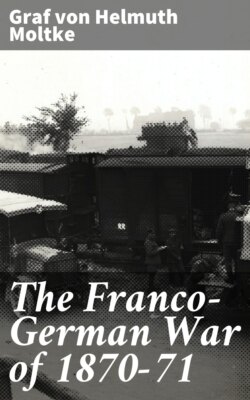Читать книгу The Franco-German War of 1870-71 - Graf von Helmuth Moltke - Страница 5
На сайте Литреса книга снята с продажи.
PART I.
ОглавлениеTable of Contents
The days are gone by when, for dynastical ends, small armies of professional soldiers went to war to conquer a city, or a province, and then sought winter quarters or made peace. The wars of the present day call whole nations to arms; there is scarcely a family that has not had to bewail lost ones. The entire financial resources of the State are appropriated to military purposes, and the seasons of the year have no influence on the unceasing progress of hostilities. As long as nations exist distinct one from the other there will be quarrels that can only be settled by force of arms; but, in the interests of humanity, it is to be hoped that wars will become the less frequent, as they become the more terrible.
Generally speaking, it is no longer the ambition of monarchs which endangers peace; but the impulses of a nation, its dissatisfaction with its internal conditions, the strife of parties and the intrigues of their leaders. A declaration of war, so serious in its consequences, is more easily carried by a large assembly, of which no one of the members bears the sole responsibility, than by a single individual, however lofty his position; and a peace-loving sovereign is less rare than a parliament composed of wise men. The great wars of recent times have been declared against the wish and will of the reigning powers. Now-a-days the Bourse possesses so great influence that it is able to have armies called into the field merely to protect its interests. Mexico and Egypt have had European armies of occupation inflicted upon them simply to satisfy the demands of the haute finance. To-day the question is not so much whether a nation is strong enough to make war, as whether its Government is powerful enough to prevent war. For example, united Germany has hitherto used her strength only to maintain European peace; while the weakness of a neighbouring Government continues to involve the gravest risk of war.
It was, indeed, from such a condition of relations that the war of 1870—71 originated. A Napoleon on the throne of France was bound to justify his pretensions by political and military successes. Only temporarily was the French nation contented by the victories of its arms in remote fields of war; the triumphs of the Prussian armies excited jealousy, they were regarded as arrogant, as a challenge; and the French demanded revenge for Sadowa. The liberal spirit of the epoch set itself against the autocratic Government of the Emperor; he was forced to make concessions, his internal authority was weakened, and one day the nation was informed by its representatives that it desired war with Germany.
